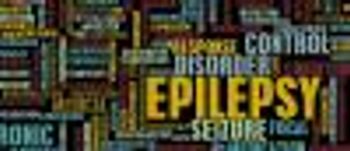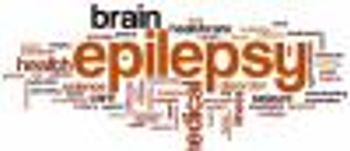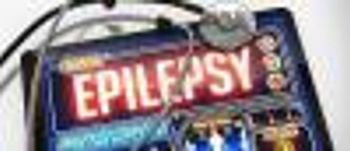
Torbjörn Tomson, MD, PhD - professor in neurology, Karolinska Institutet - discusses how health care providers can work with patients to prevent sudden unexpected death in epilepsy (SUDEP).

Torbjörn Tomson, MD, PhD - professor in neurology, Karolinska Institutet - discusses how health care providers can work with patients to prevent sudden unexpected death in epilepsy (SUDEP).

Epilepsy medications can cause folate deficiency-related birth defects but what about other birth defects?


Recently released studies on Cannabidiol, used to treat certain types of childhood seizures, are showing promising results.

Third-generation medications for epilepsy are improving treatment options.

Jacqueline A. French, MD—professor of neurology, NYU Comprehensive Epilepsy Study Consortium, president, The Epilepsy Study Consortium—discusses what pharmacists should keep in mind when treating patients with epilepsy.

Tracy Glauser, MD—associate director of Neurology, Cincinnati Children's Hospital Medical Center—discusses the role of bioinformatics in health care.

Joseph Sullivan, MD—associate professor at the University of California San Francisco, director of USCF Pediatric Epilepsy Center—discusses some of the challenges in managing pediatric epilepsy.

Mitra Habibi, PharmD, discusses the challenges in treating patients with multiple comorbidities.

Clinicians may face too many choices regarding the methods for screening patients with epilepsy for comorbidities.

Arching Shrestha, MD, discusses the challenges of treating epilepsy in the elderly.

Sanjeev V. Thomas, MD, DM, FANA—professor of neurology, chairman of the Epilepsy Program, Sree Chitra Tirunal Institute—discusses why the risk of seizures is higher for women during the peripartum period.

Jacqueline A. French, MD—professor of neurology, NYU Comprehensive Epilepsy Study Consortium, president, The Epilepsy Study Consortium—discusses how the new ILAE definition of epilepsy and classification of seizures differ from the previous versions.

Antiepileptic drugs and seizures may harm a fetus, so it is important for physicians to plan an individualized treatment strategy for women with epilepsy.

Jacqueline A. French, MD—professor of neurology, NYU Comprehensive Epilepsy Study Consortium, president, The Epilepsy Study Consortium—discusses how the new ILAE definition of epilepsy may change the disease.

Elizabeth Thiele, MD, PhD, pediatric neurologist/epileptologist, discusses treatment options for patients with epilepsy due to tuberous sclerosis complex.

Elizabeth Thiele, MD, PhD, pediatric neurologist/epileptologist, discusses the impact of tuberous sclerosis complex on children.

Jacqueline A. French, MD—professor of neurology, NYU Comprehensive Epilepsy Study Consortium, president, The Epilepsy Study Consortium—discusses how the new ILAE definition of epilepsy can improve patient outcomes.

Not planning pregnancy in women with epilepsy could lead to fetal malformations.

Elizabeth Thiele, MD, PhD, pediatric neurologist/epileptologist, discusses symptoms of tuberous sclerosis complex and the role early detection plays in disease prognosis.

For the first time, the new International League Against Epilepsy (ILAE) seizure classifications were presented at the American Epilepsy Society conference during the Annual Fundamentals Symposium: The New Definition and Classification of Epilepsy on Friday, December 2, 2016.

The definition of epilepsy has been updated by the International League Against Epilepsy.

Speakers discuss the state of epilepsy care around the world at the AES conference.

Elizabeth Thiele, MD, PhD--pediatric neurologist/epileptologist, director, The Carol and James Herscot Center for Children and Adults with TSC, Massachusetts General Hospital--discusses tuberous sclerosis complex.

Researchers at the American Epilepsy Society meeting reported important strides in the understanding of epilepsy, including identification of new therapeutic targets in the brain, as discussed by Esther Krook-Magnuson, PhD, as well as improved understanding of the factors involved in sudden death of patients with epilepsy, and a greater recognition of the benefits of neurosurgery in patients with epilepsy.

Several new antiepileptic drugs have recently been approved in the United States. In a symposium at the American Epilepsy Society in Seattle, Washington, Professor Martin J. Brodie, MD, director of the epilepsy unit of the Western Infirmary in Glasgow, Scotland, discussed some considerations with ezogabine and eslicarbazepine.

Mark Cook, MD, of the University of Melbourne, and Brian Litt, MD, of the Penn Epilepsy Center and the Center for Neuroengineering and Therapeutics at the University of Pennsylvania, discuss how new devices, big data, and massive online competitions are enabling prediction of seizures before they start.

S. L. Moshé, MD, of the Albert Einstein College of Medicine and Montefiore Medical Center, discusses the importance of creating disease-specific models of epilepsy in animal models for understanding and treating specific epilepsy subtypes.

The links between epilepsy and other diseases offer clues for early treatment. Frances E. Jensen, MD, past AES president and professor at Cornell Medical School, describes these links, and what they mean for future epilepsy treatment modalities.

Kristen Park, MD, assistant professor of pediatrics and neurology at the University of Colorado, discussed the potential risks and benefits of alternative therapies for epilepsy, including medical marijuana.